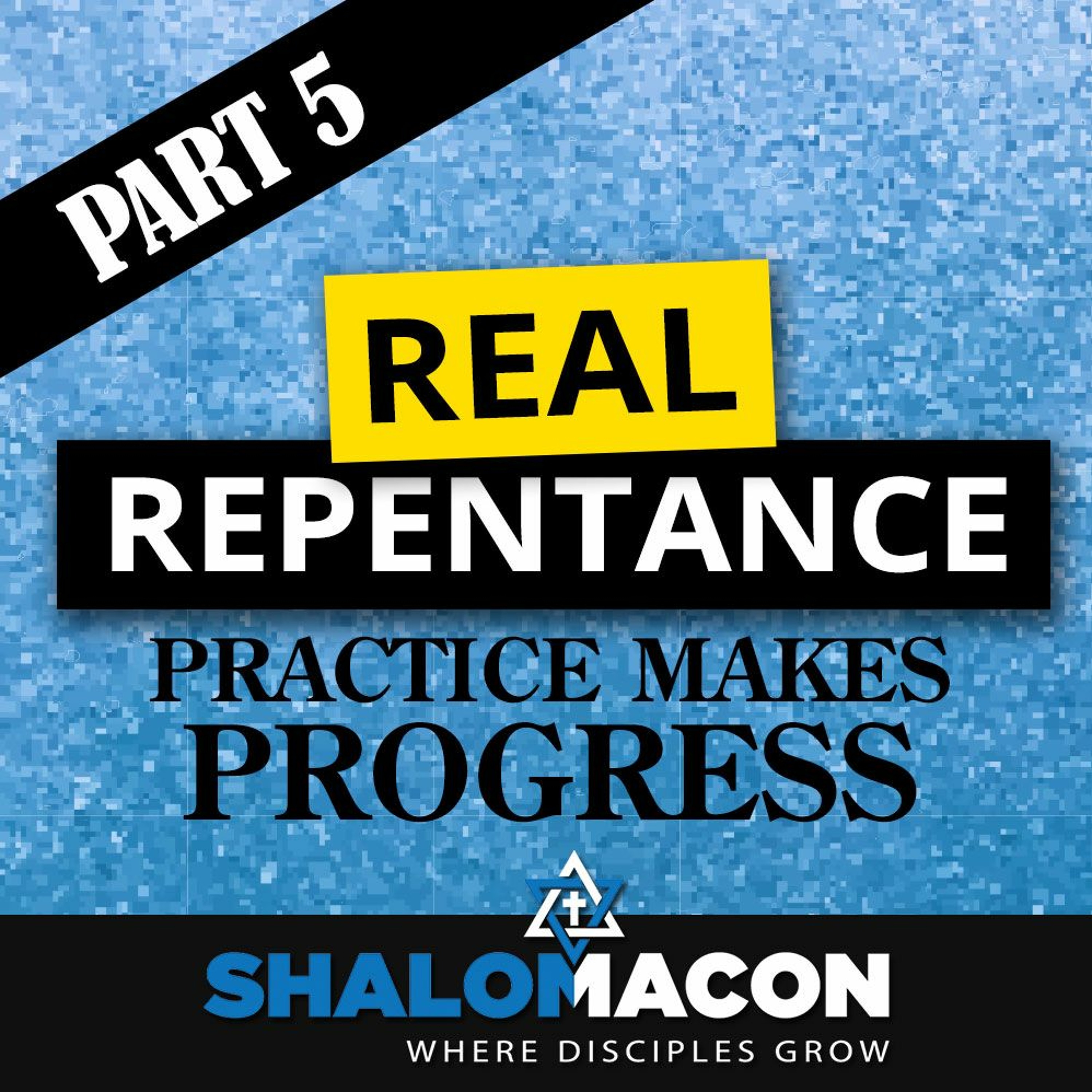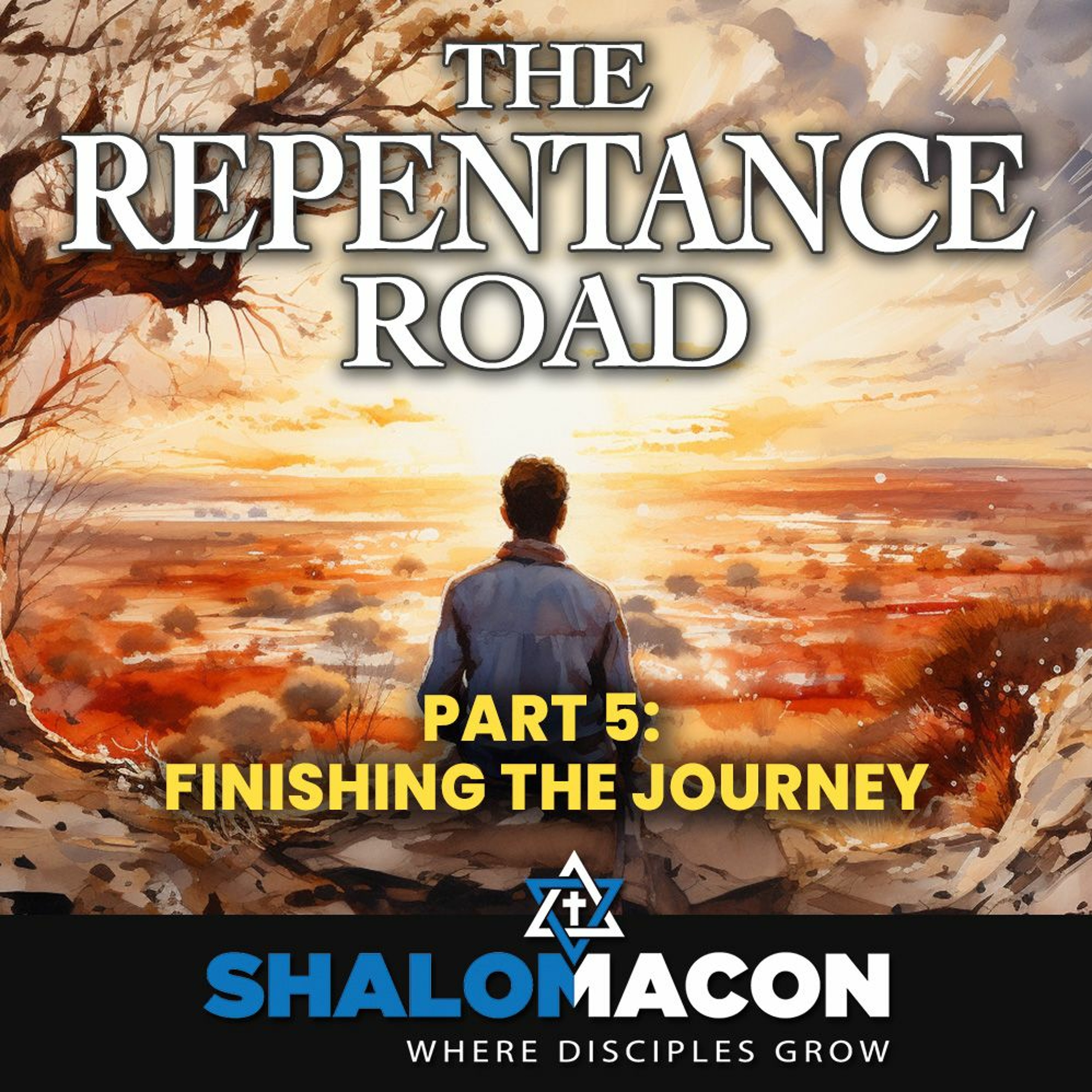Episode Transcript
[00:00:00] What kind of God would give impossible commands and then punish you for failing them? That's not the God of Israel. That's the cruelty of pagan idols or the deception of the enemy himself. If he can convince you that you'll never overcome that God's standard is impossible, then he's already won. But this week's Torah portion says otherwise. God's commandments are not far away, not out of reach. They're in your mouth and in your heart so that you can do them. Join me as we expose the lie of impossibility and embrace the truth of God's nearness in this week's five Minute Torah Shalom and blessings from Shalom Macon, the place where disciples of Yeshua learn, connect and grow. I'm Darren, and before I get into the five minutes of my five Minute Torah commentary, let's cover a few quick facts about this this week's Torah portion this week we are studying the 51st portion of the Torah cycle and the seventh portion of the Book of Deuteronomy. We are in the portion of Netzavim Deuteronomy 29:9 30, verse 20. And here are the three things that you need to know about it. Number one standing the covenant of Inclusion the Torah portion opens with all Israel gathered to renew the covenant leaders, elders, men, women, children, and even the sojourners among them. See Deuteronomy 29, 9:14. No one is exc excluded. This shows us that God's covenant is not just for an elite class, but for every member of the community. It also extends to those who are not with us here today, meaning future generations are also included. God's covenant with Israel will never end, no matter what Reformed theologians may try to tell you.
[00:01:45] 2. Returning to God the Promise of Teshuvah Nitzevim contains one of the clearest promises of restoration in the Torah the When Israel returns to God with all her heart and soul, he will gather them back from exile and bless them. See Deuteronomy 30, verses 1 through 10. This passage forms the foundation for the Jewish understanding of Teshuvah repentance and is read as preparation for the high holy days. It reminds us that no matter how far we have strayed, God's arms are always open if we return to him wholeheartedly. And Number three Life and death. The choice is ours. The portion climaxes with Moses setting before Israel the ultimate choice I have set before you. Life and death, blessing and curse. Therefore choose life. Deuteronomy chapter 30, verse 19. This is more than a poetic statement. It's a daily reality. Life is found in loving God, obeying His commandments, and walking in his ways. Death comes from turning away. God causes people to actively choose life not just for themselves, but for their descendants. It's a stirring reminder that our choices matter and shape the future.
[00:02:56] What does it really mean to live by the Spirit of the Law and not the letter of the Law? For centuries, believers have been told that the Law of God is a burden and something Yeshua came to set us free from. But what if that's not what the scriptures say at all? What if Paul's words about the letter of the law killing were never meant to pit God's spirit against his own commandments? If you've ever struggled to reconcile law and grace, Spirit of the Law will open your eyes to a richer, more faithful understanding of both. It will challenge assumptions, bring clarity to misunderstood passages, and invite you into a deeper walk of obedience, one that's alive with the Spirit of God. Pick up your copy today and let the Spirit of the Law transform the way you see God's Word and and the way you live it. This week's Torah commentary is called Lies and Limiting Beliefs and comes from my book 5 Minute Torah, Volume 3. In my 5 Minute Torah commentary on the Portion of Shoftim, which you can check out right here, we discussed the idea that many people consider the Torah to be impossible to keep. Our current Torah portion reinforces the fact that God gave the Torah to His people because he believes they are capable of living it out. Where do we see this?
[00:04:08] First, God gives the children of Israel a choice to live by his commandments and receive blessings, or to disobey his commandments and receive curses. See Deuteronomy 30, verses 1 through 10. Unfortunately, many people superimpose the character of a cruel earthly father onto our loving heavenly father. How absurd would it be if our heavenly father told us to do things he knew were impossible? This sounds more like the perniciousness of the Greek pantheon or even the abuse found in the Nazi war camps than the loving God of Israel. The only a cruel God would punish a people for setting a standard that was impossible to keep, and then curse people for not keeping it. Second, he tells us his standard of righteousness is not too difficult for this commandment that I command you today is not too hard for you. Neither is it far off. It is not in heaven that you should say, who will ascend to heaven for us and bring it down to us that we may hear it and do it? Neither is it beyond the sea that you should say, for who will go over the sea for us and bring it to us, that we may hear it and do it. But the word is very near you. It is in your mouth and in your heart so that you can do it. This is Deuteronomy 30, verses 11 through 14. The enemy's greatest tool is deception. If he can make us believe that success is not an option, he has one before we even get started with this in mind, sometimes we feel that it's easier to give in to our struggles than to overcome them. Rather than holding onto I can't eat that fruit because God told me not to, we hear the enemy's voice saying, did God really say that? Or that doesn't apply to me. We then begin to rationalize why we need that delicious fruit and why we can't change. But anytime we respond to God's standard of righteousness with well, that's just the way I am. We are rejecting his help to overcome our individual struggles and but it's precisely in these circumstances, when we feel God's commandments are too difficult, that the Lord wants to help us become the person he created us to be. In Paul's letter to the Romans, he details the ongoing battle with sin. Chapters 6 and 7 contain both his admonition against sin and his personal struggle with it. While many people read Chapter 8 as a negation of the Torah, it's actually Paul's explanation of how his new life in Yeshua helps him to submit to to the Torah's instructions. Where the Torah had previously caused him anxiety because of his sinful nature, it was now a means to show that God's standard of righteousness could be exemplified in his life. For God has done what the law weakened by the flesh, could not do. By sending his own Son in the likeness of sinful flesh and for sin, he condemned sin in the flesh in order that the righteous requirement of the law might be fulfilled in us who walk not according to the flesh, but according to the Spirit. This is Romans 8:3,4. Paul had previously held to a limiting belief regarding his relationship to the Torah. Through his attachment to Yeshua and the power of the Holy Spirit dwelling within him, however, he was able to discard that belief and to overcome his flesh and see God's righteousness fulfilled in him. We may have limiting beliefs that have caged us in and kept us from becoming the people God wants us to become. We may believe that we will never be able to control our anger, or that we can't overcome our struggle with lust or that we can't work things out with our spouse, or maybe we can't make ends meet unless we compromise our integrity in business, etc. Unfortunately, sometimes it's easier to do what's comfortable and suffer the consequences than to do what's uncomfortable and reap the benefits. Even though the commandments may be difficult at times, God has given us the ability to perform them, especially now that the Holy Spirit has been given to us. As disciples of Yeshua, the struggle is real, but it's our obligation to wage war on our flesh so that our spirit may overcome. As Paul we must also fight the good fight and beat our body into submission regarding sin in order to obtain the prize. See First Corinthians 9:27 what is your struggle or limiting belief? What is holding you back from becoming all that God wants you to be? What steps can you take to shed this mindset, to become free of the things that have bound you? Start today and don't look back. You'll be a better person because of it. If this video encouraged you, take a second to like it and subscribe to the channel so you won't miss what's next. At the end of this video you'll see a recommended teaching. Go ahead and watch it to keep building your faith and please help us spread the message. Share these videos on your social media. The more people who watch, the better they'll understand Yeshua from a Messianic Jewish perspective and together we can begin transforming our world. And hey, join us live at shalom makin on YouTube every Shabbat every Saturday at 9am and 11am Eastern time. We would love to grow with you.



